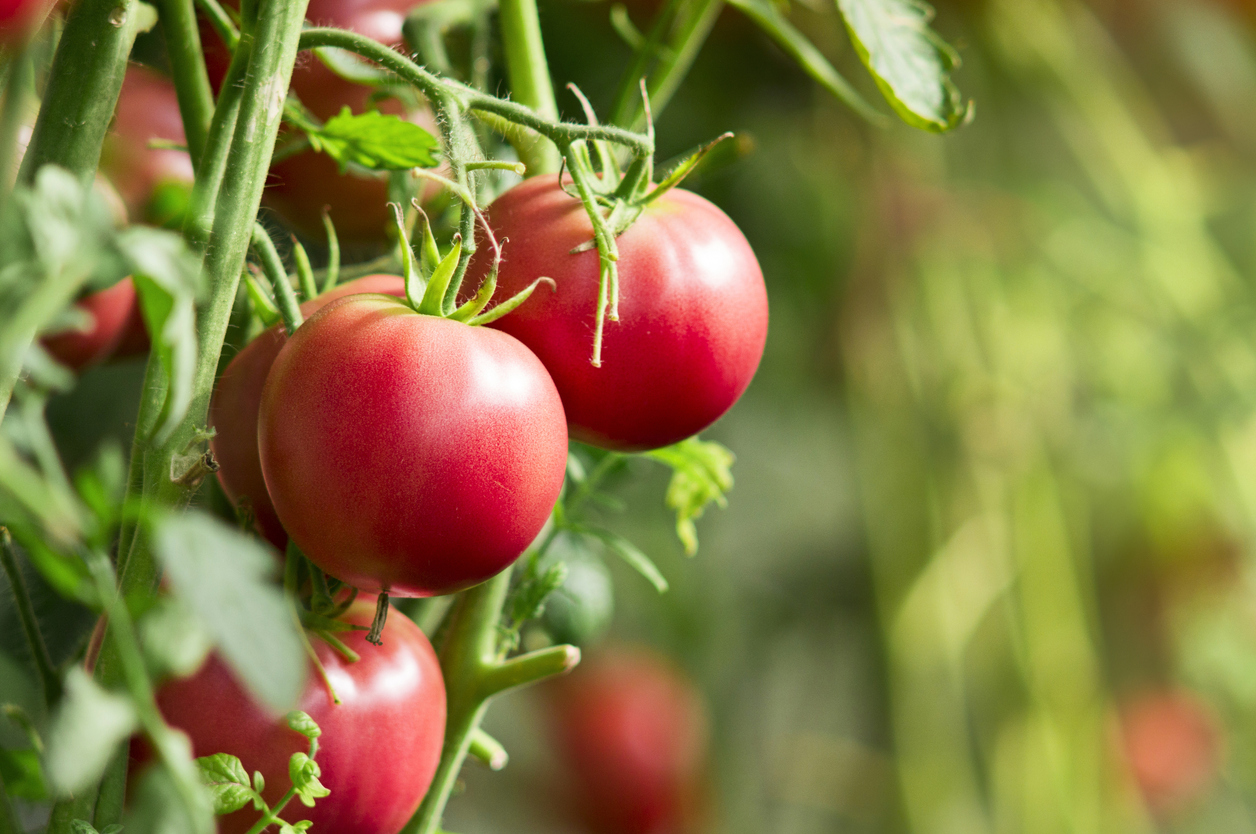
Researchers Develop Tomato Plants that Contain Full Genetic Material of Both Parent Plants
October 30, 2024| |
In a study conducted at the Max Planck Institute for Plant Breeding Research in Cologne, Germany, scientists established a system to generate clonal sex cells in tomato plants and used them to design the genomes of offspring. The fertilization of a clonal egg from one parent by a clonal sperm from another parent produced plants containing the complete genetic information of both parents.
In the system that Underwood and his team developed, meiosis was replaced by mitosis, a simple cell division, in tomato. In the so-called MiMe system (Mitosis instead of Meiosis) the cell division mimics a mitosis, thus sidestepping genetic recombination and segregation, and produces sex cells that are exact clones of the parent plant. For the first time, researchers were able to harness clonal sex cells to engineer offspring through a process called “polyploid genome design.”
The researchers performed crosses where the clonal egg from one MiMe tomato plant was fertilized by a clonal sperm from another MiMe tomato plant. The resulting tomato plants contained 48 chromosomes and the complete genetic repertoire of both parents.
For more details, read the article in the Max Planck Institute for Plant Breeding Research website.
| |
You might also like:
- Experts Develop Tiny Tomatoes for Astronauts to Grow in Space
- Researchers Investigate the Vegetative Growth of Tomato Through Gene Editing
- Researchers Develop Tomatoes with Higher Levels of Provitamin D3
Biotech Updates is a weekly newsletter of ISAAA, a not-for-profit organization. It is distributed for free to over 22,000 subscribers worldwide to inform them about the key developments in biosciences, especially in biotechnology. Your support will help us in our mission to feed the world with knowledge. You can help by donating as little as $10.
-
See more articles:
-
Plant
- USDA APHIS Releases Regulatory Status Review for Modified Sweet Orange and Maize
- Ban on GM Corn Could Exacerbate Food Insecurity and Job Loss in Mexico
- Researchers Develop Tomato Plants that Contain Full Genetic Material of Both Parent Plants
-
Food
- EFSA GMO Panel Finds No Safety Concerns with the Food Enzyme Carboxypeptidase C from GM Aspergillus Niger
-
Environment
- USDA, EPA, and FDA Launch New Web-Based Tool for Developers of Microbial Biotechnology Products
- CBD Urges Nations to Shift to Emergency Mode to Achieve Biodiversity Targets
- Colombia is 153rd Country to Ratify International Treaty on Plant Genetic Resources for Food and Agriculture
- Contributions of Biotech Crops to Food Security, Sustainability, and Climate Change Solutions
-
Read the latest: - Biotech Updates (February 18, 2026)
- Gene Editing Supplement (January 28, 2026)
- Gene Drive Supplement (February 22, 2023)
-
Subscribe to BU: - Share
- Tweet

